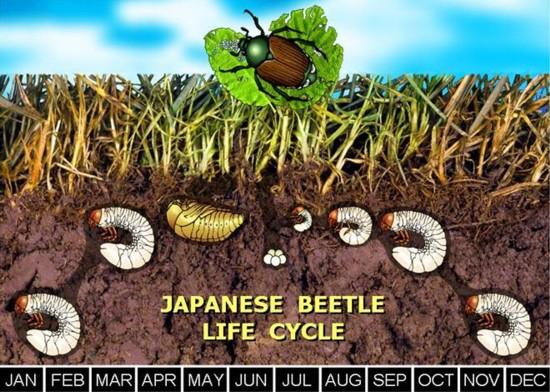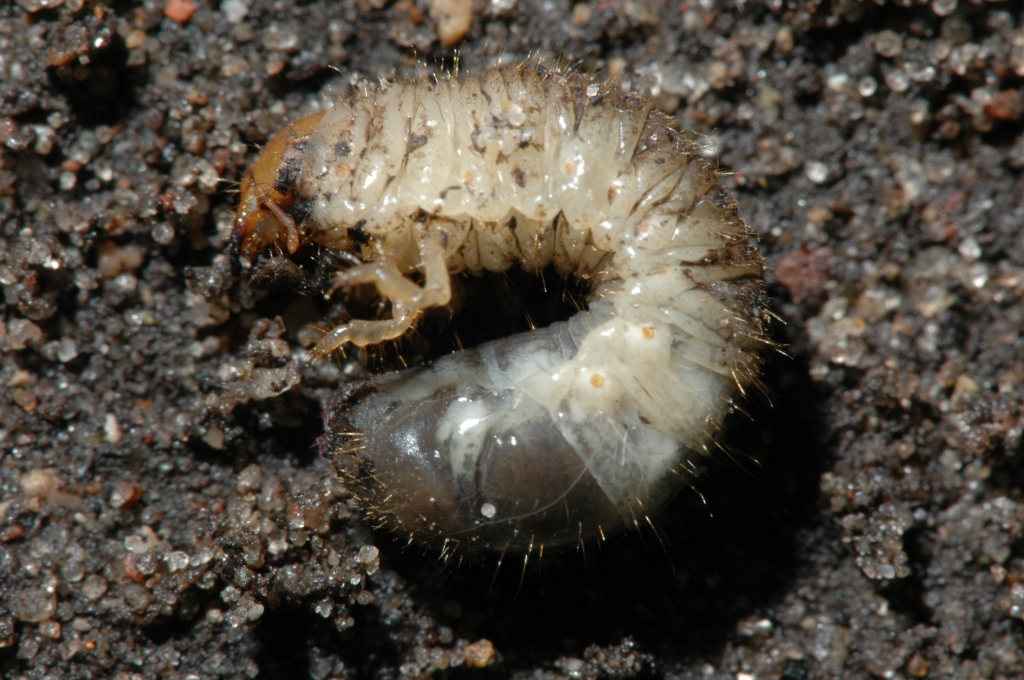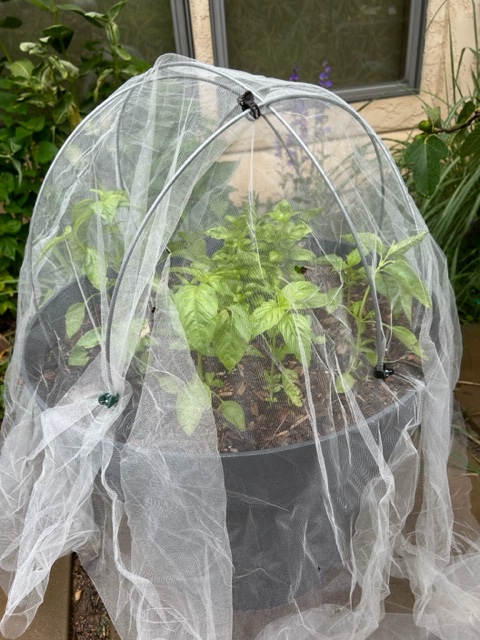By John Ashworth, CSU Extension – Denver Master Gardener since 2014
In the metro Denver area, Japanese Beetles (JB) are unfortunately here to stay. They have steadily spread from the southern fringes of the metro area to Denver and the surrounding suburbs. It’s not too soon to develop a plan of attack for JBs in this year’s garden. Start by understanding the life cycle of the Japanese beetle and how you can interrupt it to reduce the numbers in your yard. This image shows that life cycle.

CSU Extension has published this excellent fact sheet, which covers the life cycle, strategies for reducing infestations, plant choice, and routes for attacking grub and adult populations.
The adult female lays eggs in grassy areas in late last summer. The eggs then hatch into larvae, which feed on the grass roots until early fall, when they move deeper into the soil to overwinter.
In spring, the larvae move closer to the surface, feed on grass roots, pupate, and emerge as adults. Springtime is also when you can limit Japanese beetle numbers by taking proactive action. Let’s look at three options – biological controls, chemical options, and plant selection – to help reduce JB damage in the next few months.

Biological Controls
In mid-May, as the grubs move closer to the surface, a mail-order biological control, grubGONE!, can be applied to the lawn. It contains a bacterium, Bacillus thuringiensis, which attacks the grubs before they morph into adults and emerge. Apply it with a regular fertilizer or grass seed spreader and then water thoroughly, following the manufacturer’s directions.
In the more rainy and humid eastern United States, many homeowners routinely apply “milky spore,” a bacterium that lives in the soil and attacks the Japanese beetle grubs as they move toward the surface in springtime. According to CSU, milky spore has not been shown to sizably reduce JB populations in our area, likely due to our arid, drier climate.
Chemical Options
There are several effective chemical insecticides that can be applied to grass in mid-summer. These are readily available and contain the chemicals imidaclopid, chlorantraniprole, or chlothianidin. Common tradenames for these insecticides are Scott’s GrubEx, Merit, Zenith, and Arena. These chemicals can provide effective grub control for two weeks to several months.
They’ll work best when applied to the soil shortly after Japanese beetle eggs are laid or after they have hatched. For most parts of metro Denver, this is late June to mid-July. The effectiveness of these chemicals drops if the application is delayed until August or September when the grubs are larger and more resistant.
CSU Extension recommends trichlorfon for late-season application. These insecticides are fast-acting and effective but degrade relatively quickly. They are sometimes used when large colonies of grubs are discovered in turf later in the summer.
Plant Selection Can Help
In spring, decide if you want to keep plants in your yard that are highly attractive to Japanese beetles, such as Virginia creeper, silver lace vine, linden trees, rose of Sharon, and hibiscus. Consider substituting less-attractive varieties. Valuable food and plants that adult beetles prefer (grapes, and roses in particular) can benefit from protection. See my earlier post to learn about plant substitutions that have worked in my yard and ways to protect plants from damage

Later this Season
One way to reduce Japanese beetle populations next year is to reduce your grass watering in late July and early August when the female JBs are laying eggs. The females have difficulty laying eggs in drier soil so you will have fewer larvae in the fall and the following spring. Resume normal grass watering in late August and September.
Managing JB impact requires planning and persistence. Hopefully, this post will help you be successful!


This should be posted to Nextdoor
Cheers,
Jill Arnson
303-722-7646 (landline)
Compost, for a rind is a terrible thing to waste.
LikeLike